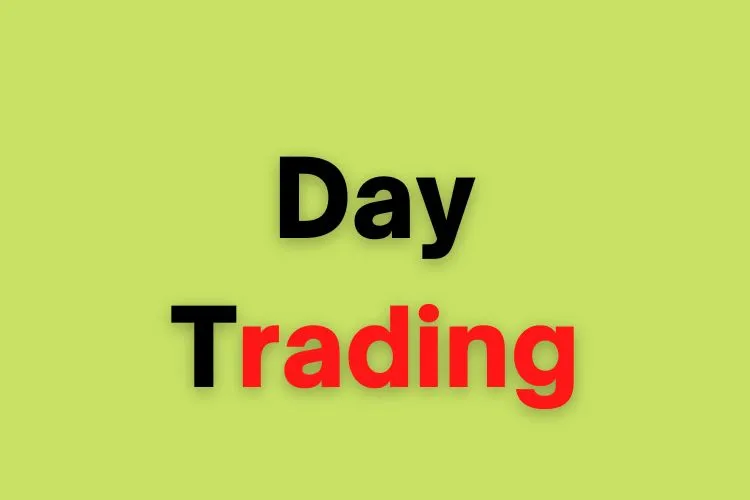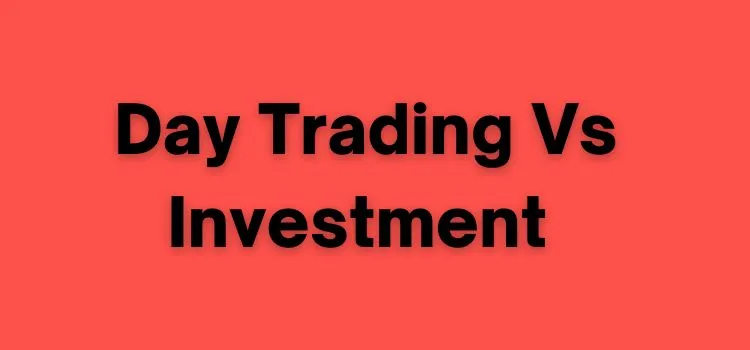Day trading beginners rules

Many people seriously misunderstand the actual concept of the term ‘day trading’. Contrary to common belief, day trading actually refers to the habit of day traders when they sell off their stock positions prior to the close of the same trading day. In simple terms, day trading means selling off stocks positions in the same day that it was purchased by the investor rather than holding it overnight. Therefore, where a long-term trader buys low and sells high over a period of days, weeks or months, a day trader does the same in a shorter period of time.
Day trading is considered to be one of the safest forms of investment for the fact that it shields investors from the potential losses that they could incur in the event that negative factors affect the stock price with the commencement of the following day’s trading. When judged by definition, many people who believe that they are day traders are, in actuality, mainstream traders simply because they regularly hold their stock positions overnight. The two primary reasons that can encourage them to act so are:
- Fear of loss at the end of the trading day if the stock price has declined as compared with the starting price, or
- Greed for higher returns on investment, especially when a certain event or development is poised to affect the stock price favourably
In either of the two cases mentioned above, investors deliberately set themselves up for the imminent catastrophic elimination of their capital. Many day traders often invest borrowed money so that they are able to reap maximum returns, even on the slightest price movements. Moreover, in order to realize maximum returns, day traders commonly prefer to trade in highly liquid stocks or indexes. Define Trade Provides comprehensive guidance on Trading.
Are Day Trading And Investment Similar?
Some experts think of the concept of day trading as noticeably different from investing. They support their theory by citing that investment involves buying a stake in assets that would ideally promise returns over a long period of time. Although the period over which maximum profits can be realized is highly subjective so that it cannot be defined, an investor may own assets for years at end. This is not the case with day trading as it encourages investors to purchase and sell their stock positions in the same trading day.

Some Commonly Used Day Trading Terms
Day traders often come across certain terms during a trading session that are restricted to the specific discipline. Some of these terms are defined below:
- Securities – All financial assets that can be assigned a monetary value and which can be traded.
- Stocks – A certain type of security that grants, to the bearer of the instrument, ownership rights within a company.
- Derivatives – A financial instrument, the price of which has a strong correlation with a related or underlying commodity. The price of derivatives is guided by fluctuations in the value of an underlying commodity.
- Trader – The person who is actively involved in the purchase and sale of financial assets and who generally holds assets for a shorter period of time when compared with investors.
There are many reasons why day trading has been the preferred style of forex trading for many investors. Apart from the obvious benefits that it promises, such as sizable earnings with minimal risk, there are other very significant advantages that day trading offers to investors, such as:
100% Cash at Beginning and Close – Day traders are able to sleep in peace through the night simply because of the fact that they dispose of all their stock positions at the end of the day. This comprehensively eliminates the likelihood that their positions will be subjected to fluctuations overnight that are usually the result of market changing factors and events.
Twice The Buying Power – Once the day traders have successfully refined their system, they are allowed roughly four times their account equity in intraday buying power which results in a significantly higher number of trading opportunities. This leverage can prove to be very useful for investors who have comprehensive knowledge of how to harness risks.
Interest on Overnight Cash Balance – Most forex trading brokers deposit investor money in an interest-bearing account. Having cash in the account entitles investors to the interest which is generally paid on their overnight cash balance.
Collect a Statistically Meaningful Sample Size – Day traders enjoy a much higher number of trading opportunities which means that they are able to gather faster access to significantly larger sample sizes. This is vital for investors who want to learn how to trade well since handsome sample size is ideal for beginners to delve into in order to start learning.
You Can Completely Ignore the News – Most stock investors are mostly on their toes regarding the latest news updates and developing events in the market. Day traders are excused from such worries for the fact that a great majority of the news that potentially affects price movements is published after the close of trading hours. Therefore, where other investors would be devastated by negative news, day traders may simply see it as trivia for the fact that they never secure a position overnight.
Traders can start with a small venture investment – Unlike other investment markets, day traders are not required to commit large sums of money simply to start trading. This makes the profitability of the market available to small-time investors who initially lack financial resources but are dedicated to increasing them over time.
Shorter trading time – Unlike other commodity trading markets, forex trading (day trading) is intraday, meaning that all the trades are disposed of in a single trading day. As a result, day traders do not need to pay attention to fundamental forex analyses and stringent research like a position trader does since day trades are typically closed within the day.
Higher Leverage – Day trading promises higher leverage to customers as compared to other investment markets. Day traders are allowed leverage of 50:1 to 500:1. This essentially means that a day trader has the potential to multiply returns on investment by a staggering 50 to 500 times in the event that the trade bears good fruit.
There are many reasons why day trading has been the preferred style of forex trading for many investors. Apart from the obvious benefits that it promises, such as sizable earnings with minimal risk, there are other very significant advantages that day trading offers to investors, such as:

Benefits of Day Trading over Investment
100% Cash at Beginning and Close – Day traders are able to sleep in peace through the night simply because of the fact that they dispose of all their stock positions at the end of the day. This comprehensively eliminates the likelihood that their positions will be subjected to fluctuations overnight that are usually the result of market-changing factors and events.
Twice The Buying Power – Once the day traders have successfully refined their system, they are allowed roughly four times their account equity in intraday buying power which results in a significantly higher number of trading opportunities. This leverage can prove to be very useful for investors who have comprehensive knowledge on how to harness risks.
Interest on Overnight Cash Balance – Most forex trading brokers deposit investor money in an interest-bearing account. Having cash in the account entitles investors to the interest which is generally paid on their overnight cash balance.
Collect a Statistically Meaningful Sample Size – Day traders enjoy a much higher number of trading opportunities which means that they are able to gather faster access to significantly larger sample sizes. This is vital for investors who want to learn how to trade well since handsome sample size is ideal for beginners to delve into in order to start learning.
You Can Completely Ignore the News – Most stock investors are mostly on their toes regarding the latest news update and developing events in the market. Day traders are excused from such worries for the fact that a great majority of the news that potentially affects price movements is published after the close of trading hours. Therefore, where other investors would be devastated by negative news, day traders may simply see it as trivia for the fact that they never secure a position overnight.
Traders can start with a small venture investment – Unlike other investment markets, day traders are not required to commit large sums of money simply to start trading. This makes the profitability of the market available to small-time investors who initially lack financial resources but are dedicated to increasing them over time.
Shorter trading time – Unlike other commodity trading markets, forex trading (day trading) is intraday, meaning that all the trades are disposed of in a single trading day. As a result, day traders do not need to pay attention to fundamental forex analyses and stringent research like a position trader does since day trades are typically closed within the day.
Higher Leverage – Day trading promises higher leverage to customers as compared to other investment markets. Day traders are allowed leverage of 50:1 to 500:1. This essentially means that a day trader has the potential to multiply returns on investment by a staggering 50 to 500 times in the event that the trade bears good fruit.
What is Day Trading?
Day trading is the habit of investors to purchasing and selling their stock positions within the same trading day. Day traders generally secure a stock position in the forex market at the commencement of a trading day and monitor the slightest movements in its trading price. The primary objective of a day trader, when securing a stock position, is to exploit favourable stock price movements, selling the stock at the ideal value in order to maximize returns on investment prior to the close of the trading day.
Common Day Trading Behavior
Day traders generally behave in two commonly identifiable ways in order to reap maximum returns on investments by exploiting price movements. They could either:
Buy low and sell high – At the start of a trading day, day traders are generally on the lookout for low-valued volatile stocks that betray strong unmistakable signs of upward movement. When such stocks have been successfully identified, day traders purchase them and monitor their price movement throughout the day. The minute the price reaches the ideal level so as to reap maximum profits, the day traders sell the stock position.
Sell high or buy low – As the trading day begins, day traders identify stocks that have a high price. In the event that a high-value stock betrays ominous signs of a downward spiral, all previously secured stock positions having a high value are liquidated. These stocks are then re-secured by day traders prior to the close of the trading day.
Common Types of Trade Orders and Their Usage
During the course of a single day’s trading session, day traders make use of certain orders that are required in order to complete the trade. Among these, two orders are mandatory regardless of the type of trade taking place. These orders are discussed below in detail:
Buy Orders – This is used by day traders when they are entering the trade through the purchase of stock positions
Sell Orders – This is used by day traders when they are exiting the trade through the sale of secured stock positions
Traders who are relatively new to the day trading concept should remember that an order can either be a buy order or a sell order and not both at the same time – it can be used either to enter a trade or exit it. Therefore, if a trade is entered using a buy order, the trader would need a selling order to exit and vice versa.
Example
If stock movement is poised for growth during a given trading day, a day trader would be inclined to use a buy order for entering the trade and a sell order for exiting it. On the other hand, in the event that the market betrays ominous signs of a strong downward trend in prices, the day trader would rather prefer to use a sell order to enter the trade followed by a buy order for exiting. Over the course of time, day traders are able to effectively identify the strong price movements in stock and use them to their advantage.
